|
19
MAY
2018
|
|
|
|
There are cat people and there are dog people – but there are also some who believe that small pets are where it’s at. Whether you cherish your chinchillas, have a passion for bunnies, adore guinea pigs, or have a soft spot for rats, hamsters, gerbils or degus, as a committed and responsible owner you want your small furries have the best life they can. Building a closer bond with your little pets will enhance and enrich your relationship with them.
A great way to build this special bond is by hand-feeding. This is something that will take time and patience, but once your small pal happily accepts a tasty treat from your hand, is incredibly rewarding. The key is to take things slowly, so that your little chums learn to associate you with good things and begin to place their trust in you.
Am I in danger?
Small pets are prey animals, which means they think anything approaching is a potential predator – even you. Don’t loom over them (as a pred.. [More]
|
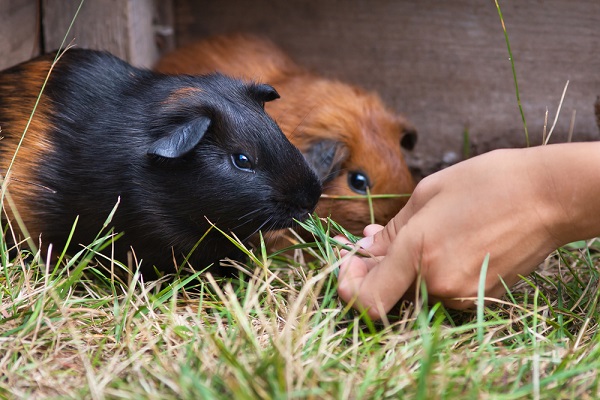
|
|
|
Tags :
Bonding With Your Small Pets , Guinea Pigs , Rabbits , Hamsters , Chinchillas , Degus , Rats
|
|
|
|
03
MAR
2018
|
|
|
|
Selective feeding occurs when rabbits choose some components of the muesli diet in preference to others. Rabbits will naturally select the higher energy (high sugar or starch elements) and reject the pellets. This results in an unbalanced diet, as the pellets are often supplemented with minerals and vitamins as well as often being high in fibre.
Selective feeding increases the risk of the problems below:
- dental disease
- gut stasis and other digestive problems
- fly strike
- reduced fibre intake
- reduced water intake
Rabbits fed muesli style diets eat less hay leading to a reduced fibre intake. These issues have been highlighted in research by Professor Anne Meredith. The results have been published in peer reviewed journals. As a result of this research many pet retailers in UK removed muesli style diets from their shelves in 2013 and we have continued to educate vets, retailers and rabbit owners on the importance of correct nutrition for .. [More]
|
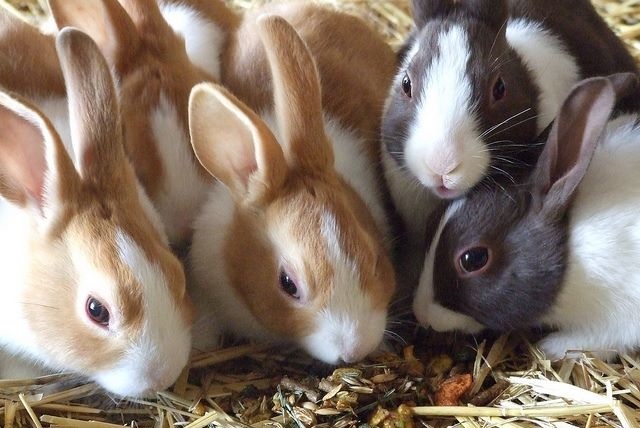
|
|
|
Tags :
Muesli Style Diets are Unhealthy For Pet Rabbits and Guinea Pigs
|
|
|
|
18
DEC
2017
|
|
|
|
‘Tis the season to be jolly but, for our pets, it’s also a time of hazardous foods, poisonous plants and dangerous decorations. Ensure the four-legged members of your family have a safe and happy Christmas by following DR SUZANNE MOYES’ festive advice For those pets who have seen a Christmas or two, the sudden arrival of a pine tree, tinsel and plates piled high with mince pies, will likely be taken in their stride. However, for young animals, all these exciting new things require close inspection, which can lead to all sorts of problems.
All You Can't Eat
At this time of the year, many of the foods we love to tuck into will do our pets more harm than good – so those pleading eyes must be ignored. It’s far better to keep your pets on their usual Burgess diet. Festive foods on the blacklist include:
Pigs in blankets: Fatty, salty meats such as pork can lead to pancreatitis.
Mince pies and Christmas cake: Raisins and sultanas (a.. [More]
|
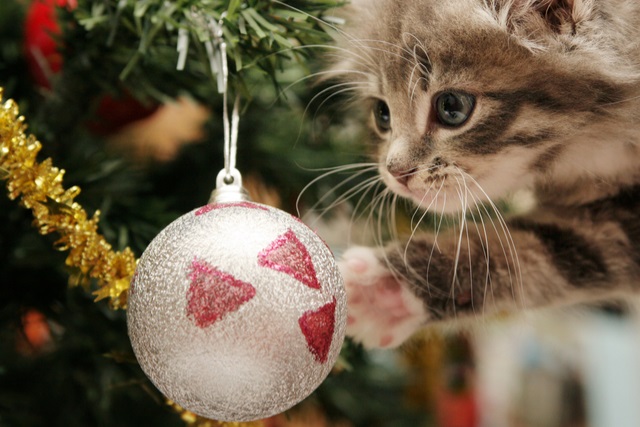
|
|
|
Tags :
Christmas Perils For Our Pets
|
|
|
|
12
FEB
2017
|
|
|
|
We would like to urge all rabbit and guinea pig owners to stop feeding their pets muesli-based foods in an effort to improve their diets. Please dump the junk. There is no such thing as a healthy muesli food. Muesli-style foods, which can contain flaked maize, peas, pellets, grains and seeds, are extremely low in fibre and have been shown to increase the risk of serious illness in rabbits and guinea pigs, with the PDSA PAW Report 2013 stating they are the cause of deadly dental and digestive problems.
We think pet owners should ditch plain grains in favour of nutritionally rich pellets that aid digestion and dental health. Any changes to your pet’s diet should be done over time though so not to upset their digestion.
Why stop, why now?
Even if your pet has been fed a muesli-based diet all their lives, they will still benefit from a swap to hay, leafy greens and nuggets. Just introduce it gradually and in small quantities to reduce the likelihood of stomach .. [More]
|
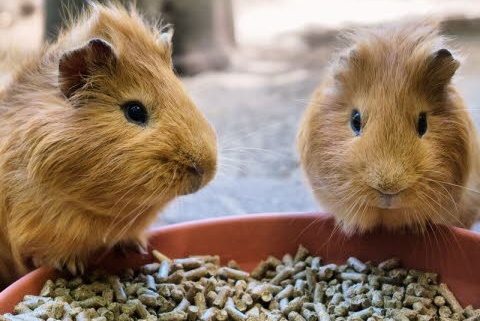
|
|
|
Tags :
Stop Feeding Muesli To Rabbits & Guinea Pigs
|
|
|
|
15
JAN
2017
|
|
|
|
Did you know that rabbits and guinea pigs need different types of hay to sleep on and to eat? While grass and herb based foods, such as pellets, will provide a good portion of your pet’s fibre needs, grass is what they would naturally nibble all day long in the wild.
Providing enough fresh grass every day to meet your rabbit or guinea pigs’s needs is difficult, hay has just the same health and digestive benefits as fresh grass – but is much easier to store.
In fact, studies have shown that feeding hay should make up to 85-90 per cent of your small furry’s daily diet, that’s around 1kg of hay per week, to maintain a healthy gut and weight and keep teeth healthy.
However research has shown that the majority of rabbits and guinea pigs are not fed the correct hay, and instead are forced to chew on bedding hay, which, while comfortable to sleep on, is often unpalatable and has an unknown nutritional value.
So what’s the alternati.. [More]
|
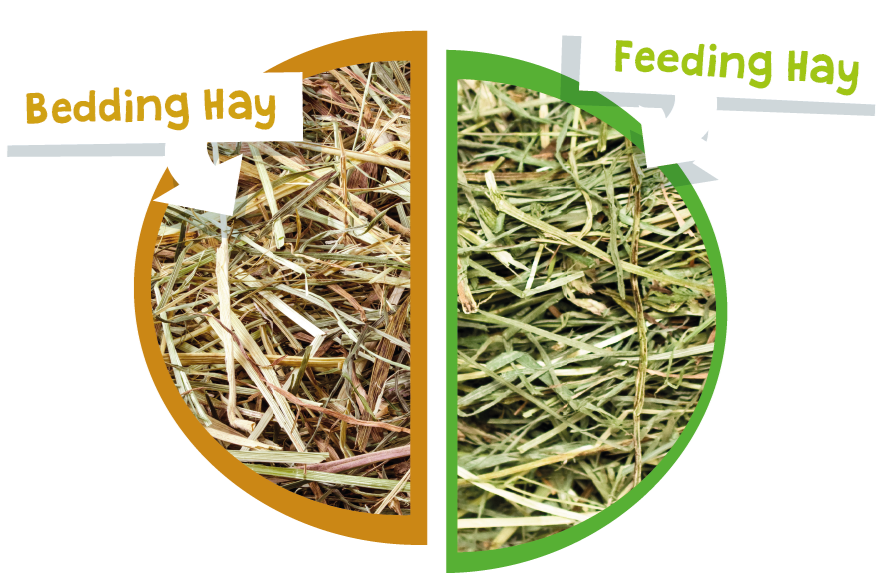
|
|
|
Tags :
Difference Between Bedding & Feeding Hay For Rabbits Guinea Pigs Chinchillas South Africa
|
|
|
|
06
NOV
2016
|
|
|
|
The purpose of a substrate (bedding) used in small animal cages is to absorb bad smelling, urine odour. Small pets such as hamsters, gerbils, mice, rats and guinea pigs need a clean habitat in order to thrive and remain healthy. Therefore the more absorbent a bedding, the better it controls nasty smells. There are a wide range of substrates available, each with its own positive and negative aspects.
You can use shredded paper as a substrate, but it won’t absorb odours, so your pet’s cage could get stinky fast. Make sure to use only paper that hasn’t been printed, as ink can be very dangerous to small animals. Only newspaper with black ink is considered to be safe.
Another suitable option for substrate are paper and wood pellets. These pellets have the benefit of being very absorbent. It may be difficult for some pets to burrow through it, however, and can be a bit expensive.
Burgess Excel Bedding is also a good option and made from natural straw i.. [More]
|
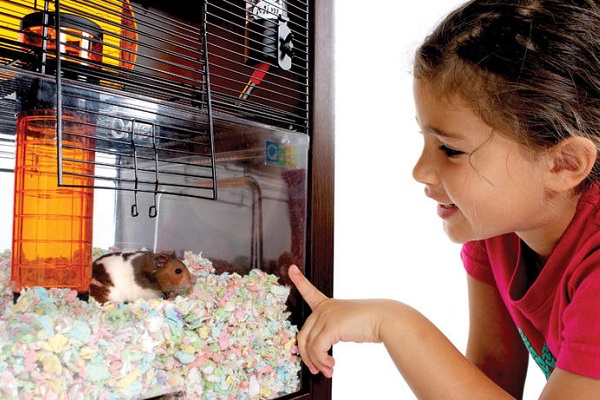
|
|
|
Tags :
Purpose Of Small Animal Bedding South Africa , Importance Of Small Animal Bedding , Carefresh South Africa , Small Animal Bedding South Africa , Wood Shavings South Africa
|
|
|
|
21
OCT
2016
|
|
|
|
Many rodents such as hamsters, gerbils, mice, domesticated rats, guinea pigs, chinchillas and degus are commonly kept as pets. All of these animals can make great pets when they are cared for properly with the right diet and proper housing. Unfortunately, many people get these animals as pets and don’t realize that in addition to good food, a safe cage, and clean bedding, these pets – just like cats and dogs – need environmental stimulation to be happy and to thrive.
Many wild rodents are very social animals living with numerous others of their own kind in their normal habitat. In the wild, they have “jobs” – searching for food, finding mates, building nests. Most rodents nest in communities and share parental responsibilities. They spend 30-50% of the time they are awake grooming each other. When young rodents are separated from their mothers, they often show an increase in disease, are more anxious and aggressive, and are less likely to.. [More]
|
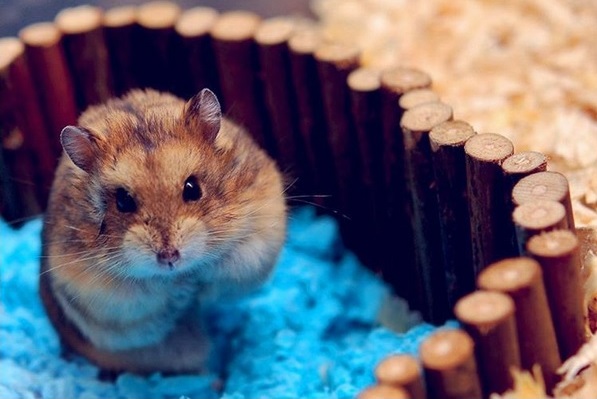
|
|
|
Tags :
Hamsters Need Enrichment For Emotional Health South Africa , Why Small Pets Need Enrichment South Africa , Hamster Toys South Africa
|
|
|
|
02
OCT
2016
|
|
|
|
Wood shavings are commonly used in South Africa as a bedding product for small animals because it’s cheap, absorbent and masks the odour from urine. It also has natural insecticidal properties and prevents the growth of bacteria (natural disinfectant). However, there has been much discussion over the safety of wood shavings among pet owners. Are wood shavings really dangerous for the animals for which they are intended?
When you open a bag of wood shavings you will instantly smell the "aromatic" nature of the litter. That smell is where the problem lies. The smell is from the natural volatile chemicals in the wood called phenols. Thus one of your best detection methods for determining an unknown bag of shavings is your own nose! If you sniff the shavings and they smell like a freshly cut Christmas tree, those shavings are releasing phenols. That bright, crisp smell is the chemical compound evaporating from the wood. Kiln-dried pine shavings are considered sa.. [More]
|
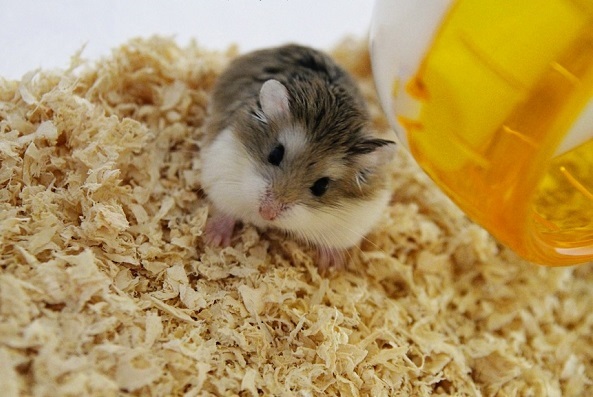
|
|
|
Tags :
Wood Shavings Are Toxic To Small Pets South Africa
|
|
|
|
11
AUG
2016
|
|
|
|
Recent scientific studies in 2013 revealed that chinchillas can live happily on just high quality hay and water for a balanced diet. If you feel you must feed some commercial food, then it must be rationed. Only a heaped tablespoon of high fibre pellets/nuggets must be fed daily to an adult chinchilla which will provide the essential digestible fibre. The rest of the day, the chinchilla will spend eating a long fibre hay which will provide the essential indigestible fibre to keep their digestive system moving and to maintain the right balance of intestinal bacteria. So is it necessary to feed them some fruit and vegetables as well?
According to RSPCA and PDSA (People's Dispensary For Sick Animals), fresh food should only take up less than 10% of a chinchilla’s diet, so don’t offer too much because if they eat too much of any fruit and vegetable, they are likely to get a upset stomach. But the right kind of fruit or vegetable can make a tasty treat for a chinchil.. [More]
|
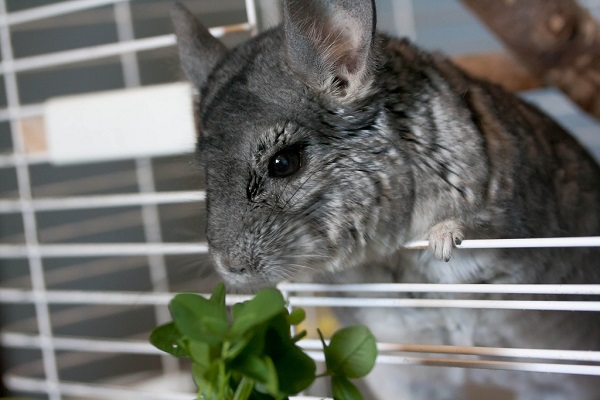
|
|
|
Tags :
Can Chinchillas Eat Fruit & Veggies? , Are Fruit & Veggies Safe For Chinchillas To Eat?
|
|
|
|
29
MAY
2016
|
|
|
|
The latest feeding recommendation for rabbits, guinea pigs and chinchillas is a diet of 80% grass hay and/or fresh grass. But why are there so many pet owners reluctant to do this? Maybe there is a fear that their beloved pet will starve to death. Or how do we know if our hay in South Africa is good enough? It has been proven that only a diet of hay provides them with good digestive health as well as physical and mental stimulation.
Concentrated food such as pellets, nuggets or dry food mixtures (also called muesli) must constitute only 10% of the diet because they don’t contain the right type of fibre. Failing to provide adequate portions of the right kind of fibre can rapidly lead to illness or death.
Because grass/hay does not appeal to humans, we have decided to feed more concentrated foods. Many people today are becoming more and more conscious of what they putting into their bodies. This is why we always look at the nutritional information on the back of foo.. [More]
|
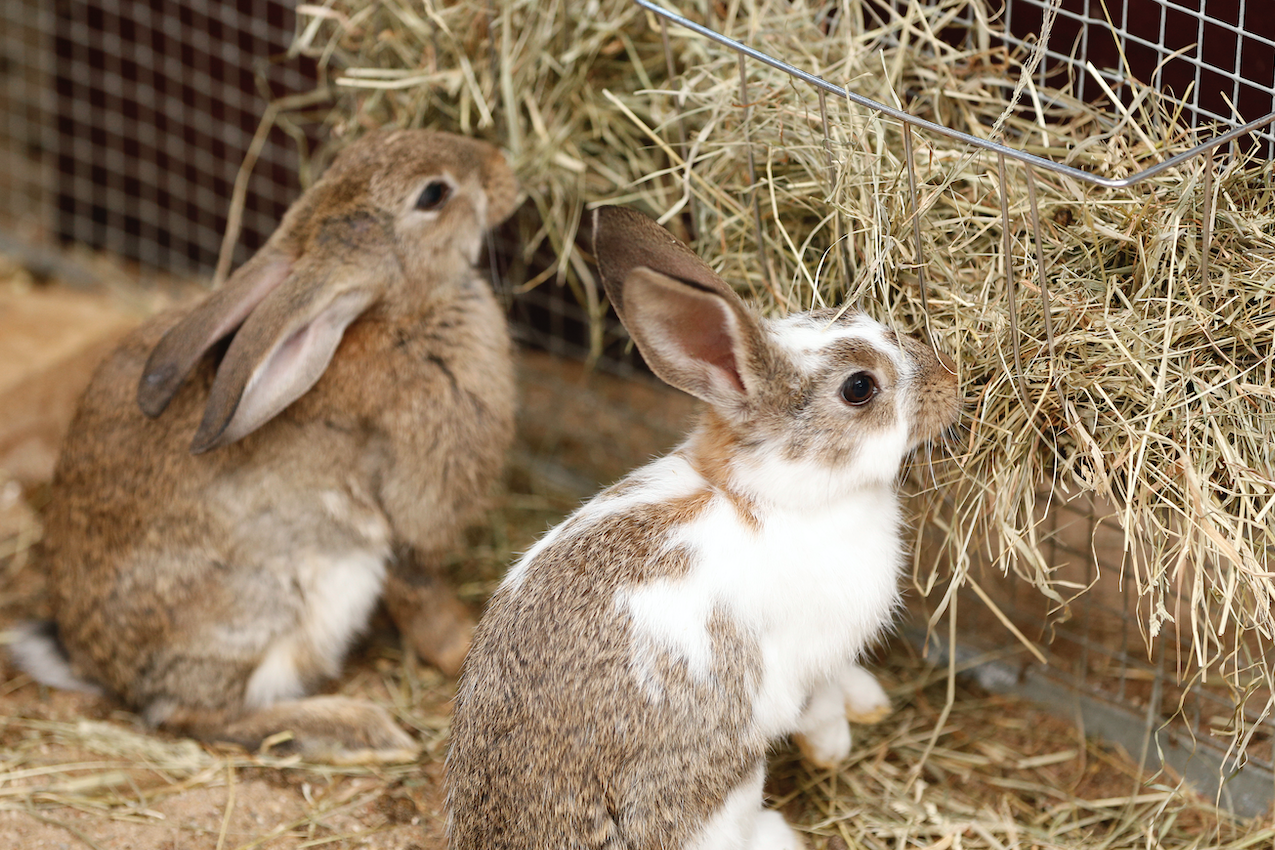
|
|
|
Tags :
What Is Best Hay In South Africa? Which Is Best Hay In South Africa? , Review of Different Hay in South Africa
|
|
|
|
|
|
Category List
|
|
|
|
|
|
Archive List
|
2025 2023 2022 2021 2020 2019 2018 2017 2016 2015 2014 |
|
|